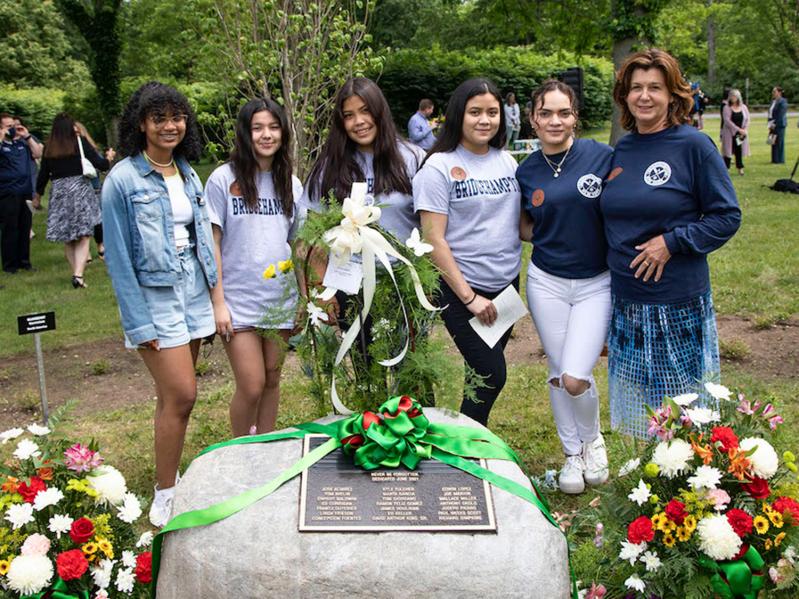If there's one lesson that children should learn in school, and that Judiann Carmack-Fayyaz said she has tried to impart to her Bridgehampton students, it is that they understand where food comes from, how it's grown or produced, and how to secure the world's food supply for the future. She is credited for establishing the school's popular agricultural education program, which led to her being named New York State's agriculture teacher of the year and receiving a national award for excellence from the U.S. Department of Agriculture in 2016.
Ms. Carmack-Fayyaz's tenure at the Bridgehampton School has come to a close. She's on to new endeavors -- she wouldn't yet elaborate, but said she's excited for the future.
Following a May 25 executive session, the Bridgehampton School Board returned to a public session after 10 p.m. and voted to abolish the position of agriculture teacher. The resolution had not appeared on the official agenda distributed that day before the meeting. The vote "excessed" -- the profession's term for "laid off" -- Ms. Carmack-Fayyaz after 16 years; she later submitted a formal letter of retirement, which was approved by the board on June 22. Also on June 22, Ms. Carmack-Fayyaz donated two of her remaining "catastrophic sick days" to a longtime faculty member who has been out on a health-related leave.
Neither Mary T. Kelly, Bridgehampton's superintendent, nor Michael Miller, the school principal, responded to a request for comment this week. In a June 1 letter to Ms. Carmack-Fayyaz, Dr. Kelly wrote, "Thank you for all you have done for the students, staff, and community."
Teaching at Bridgehampton was "an amazing, amazing experience," she said. "I was able to maybe even relive my high school years throughout my teaching tenure. I wanted to do hands-on things and learn by doing and interacting . . . and I always wanted to provide that to my students."
The food lesson is the first thing she emphasizes, but the second thing she teaches is the "three Rs" -- but not the reading, writing, and 'rithmetic that kids learn early on. Rather, Ms. Carmack-Fayyaz's version is "rigor, relationships, and relevancy."
"Those three Rs, to me, are so key. It makes a difference," she said.
In addition to establishing the school's agricultural program and running its thriving greenhouse, Ms. Carmack-Fayyaz is the founder of the Edible School Gardens group, the author of the "Delicious Nutritious FoodBook," published in 2014, and the governor of the New York State chapter of Slow Food USA.
Originally a landscape designer who also had a brief career in the banking industry, she arrived at Bridgehampton after teaching for a few years at the Ross School. She was attracted to Bridgehampton, she said, because of its small size. "You could do things and be nimble, flexible, and daring," she said.
She also had a role in technology studies, encouraging female students to get more involved in the male-dominated field of robotics. As a co-founder of the school's successful robotics team, she helped lead it to a FIRST Robotics world championship appearance in the team's inaugural year, in 2015. She called that one of her proudest moments as a Bridgehampton teacher.
"We were jumping for joy. I don't think I ever experienced that before -- being at the pinnacle of a sporting event. I consider robotics a sport!"
Ms. Carmack-Fayyaz was also known for opening her classroom during lunch periods for kids who needed a "safe space" that was quieter than the school cafeteria. Over the years, numerous students have thanked her by name during their graduation remarks.
Ken Giosi, a faculty colleague and robotics team founder, said Ms. Carmack-Fayyaz will be sorely missed.
"She has been an inspiration for me as an educator -- a role model for me in terms of really keeping the kids the number-one priority," he said. "I'm grateful to have been able to be around her for that. She's had that effect on so many people, students, and staff."
"I want my daughter to be courageous, independent, and generous," he said -- just like Ms. Carmack-Fayyaz.

